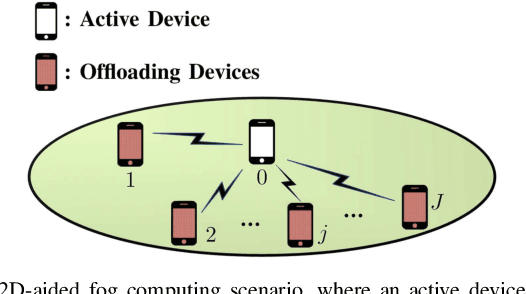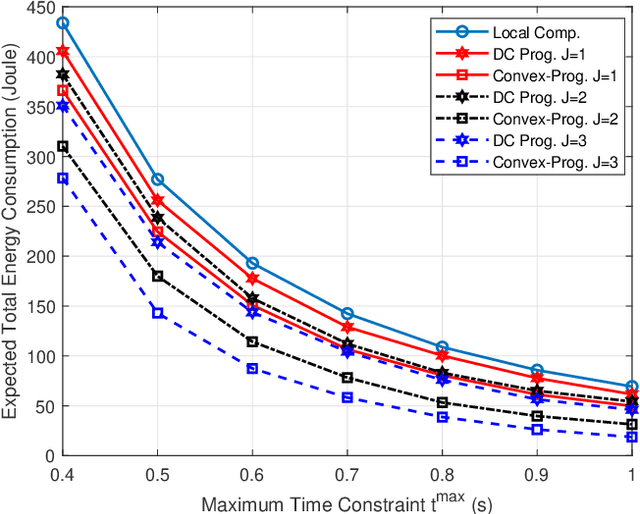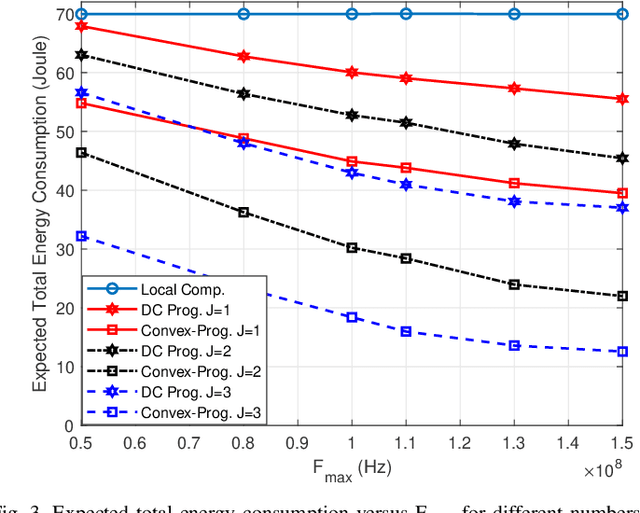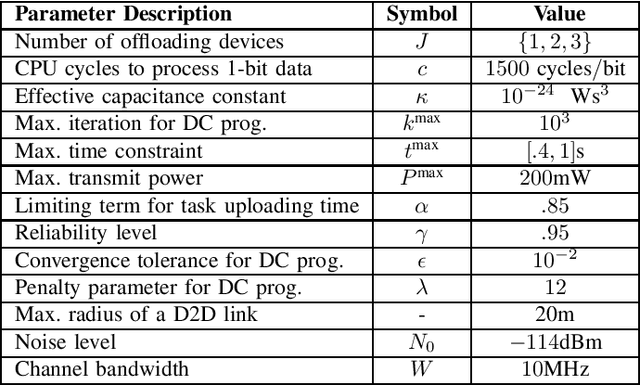Energy-Efficient D2D-Aided Fog Computing under Probabilistic Time Constraints
Paper and Code
Jan 07, 2022



Device-to-device (D2D) communication is an enabling technology for fog computing by allowing the sharing of computation resources between mobile devices. However, temperature variations in the device CPUs affect the computation resources available for task offloading, which unpredictably alters the processing time and energy consumption. In this paper, we address the problem of resource allocation with respect to task partitioning, computation resources and transmit power in a D2D-aided fog computing scenario, aiming to minimize the expected total energy consumption under probabilistic constraints on the processing time. Since the formulated problem is non-convex, we propose two sub-optimal solution methods. The first method is based on difference of convex (DC) programming, which we combine with chance-constraint programming to handle the probabilistic time limitations. Considering that DC programming is dependent on a good initial point, we propose a second method that relies on only convex programming, which eliminates the dependence on user-defined initialization. Simulation results demonstrate that the latter method outperforms the former in terms of energy efficiency and run-time.
 Add to Chrome
Add to Chrome Add to Firefox
Add to Firefox Add to Edge
Add to Edge